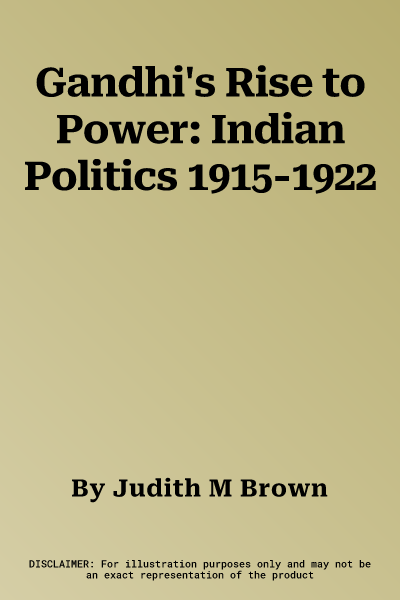Judith M Brown
(Author)Gandhi's Rise to Power: Indian Politics 1915-1922Hardcover, 30 June 1972

Temporarily out of stock
Free Delivery
Cash on Delivery
15 Days
Free Returns
Secure Checkout

Part of Series
Cambridge South Asian Studies
Part of Series
Cambridge Studies in the History and Theory of Politics
Print Length
400 pages
Language
English
Publisher
Cambridge University Press
Date Published
30 Jun 1972
ISBN-10
0521083532
ISBN-13
9780521083539
Description
Product Details
Author:
Book Format:
Hardcover
Date Published:
30 June 1972
Genre:
Indian
ISBN-10:
0521083532
ISBN-13:
9780521083539
Language:
English
Location:
Cambridge
Pages:
400
Publisher: